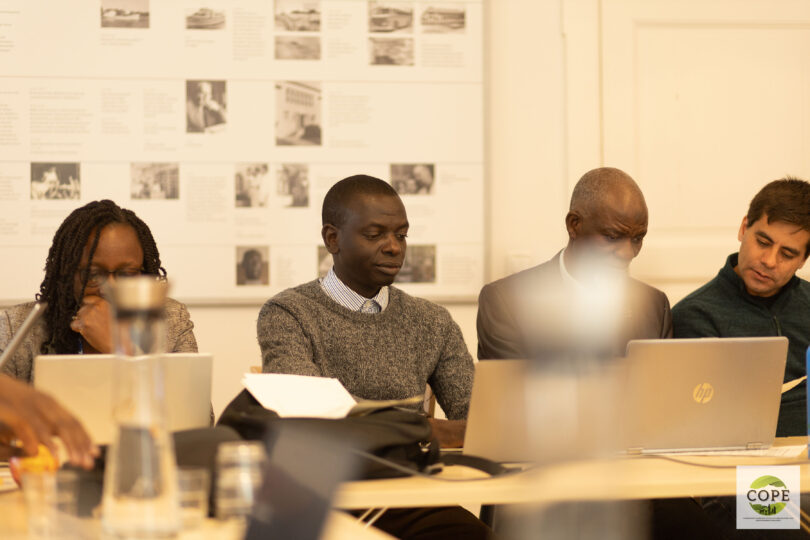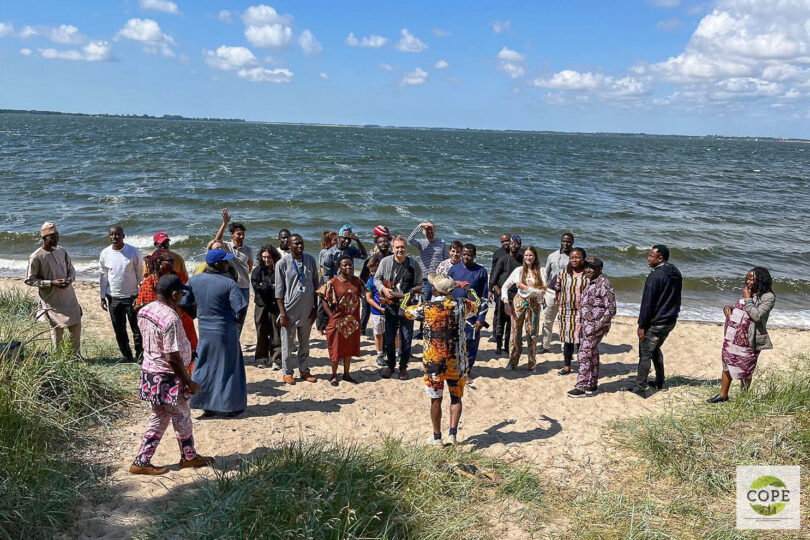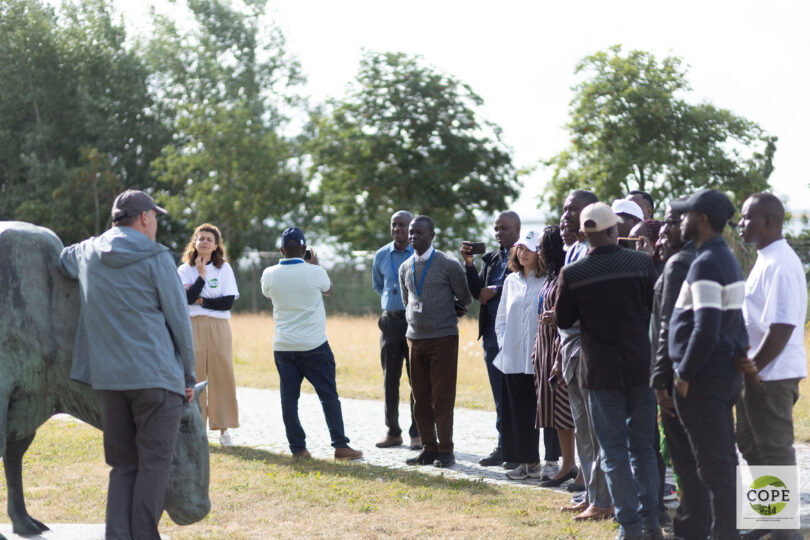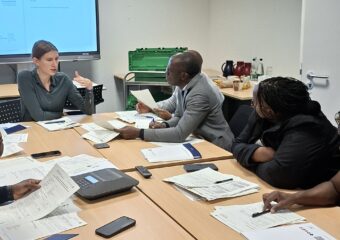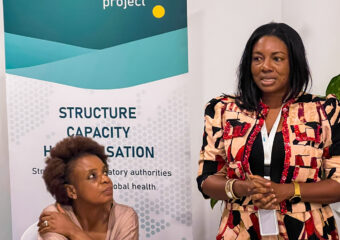Collaborative Writing, Shared Purpose: Interdisciplinary COPE Manuscript Workshop at the Friedrich-Loeffler-Institut
Researchers from Nigeria and Germany met for an interdisciplinary writing workshop at the Friedrich-Loeffler-Institut on the island of Riems. The purpose was to work with COPE data on joint manuscripts and a manual.
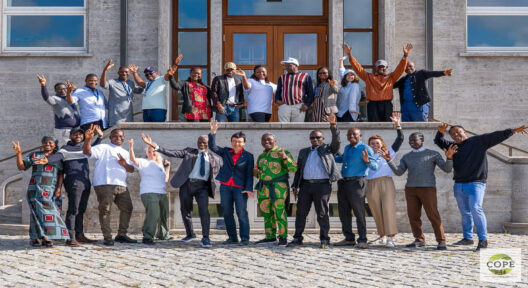
From 7 to 11 July 2025, twenty-five researchers from Nigeria and Germany gathered for an interdisciplinary Manuscript Writing Workshop. The event was organised as part of the COPE project and took place at the Friedrich-Loeffler-Institut on the island of Riems. The COPE project promotes community-driven solutions to Lassa fever within a One Health framework in South East Nigeria.
This summer’s workshop built upon the mid-term workshop held at Robert Koch Institute (RKI) in Berlin in 2024. Participants represented all COPE partner institutions: the Nigeria Centre for Disease Control and Prevention (NCDC, project lead), Friedrich-Loeffler-Institut (FLI), the National Veterinary Research Institute (NVRI) of Nigeria, the University of Ibadan (UI) in Nigeria, and RKI’s Centre for International Health Protection (ZIG). The team brought together expertise from epidemiology, veterinary and laboratory sciences, environmental health, anthropology, and public health.
The core focus of the workshop was collaborative data triangulation and writing. Participants worked intensively to transform the wealth of field data into joint and sub-team-specific manuscripts, as well as a practical COPE Manual. This field data included findings from anthropological fieldwork and the first of two risk assessments covering human, animal, and environmental factors in everyday community life. It also included the community-led participatory needs assessment and intervention synthesis, as well as the community-led intervention implementation. The collaborative writing provided an opportunity for renewed triangulation allowing the interdisciplinary team to revisit open questions, align interpretations across disciplines, and deepen their shared understanding of the findings.
Apart from producing first drafts and outlines, the week provided time and space for strategic reflection. Participants discussed the final project phase, including documentation and evaluation processes. They also covered publication planning and effective ways to share the results with the communities involved.
Beyond the working sessions, the group also shared moments of creativity and joy, including singing, dancing, and filming a professionally produced One Health song video. These highlights not only brought energy to the week but also reflected the spirit of collaboration at the heart of the COPE approach.

